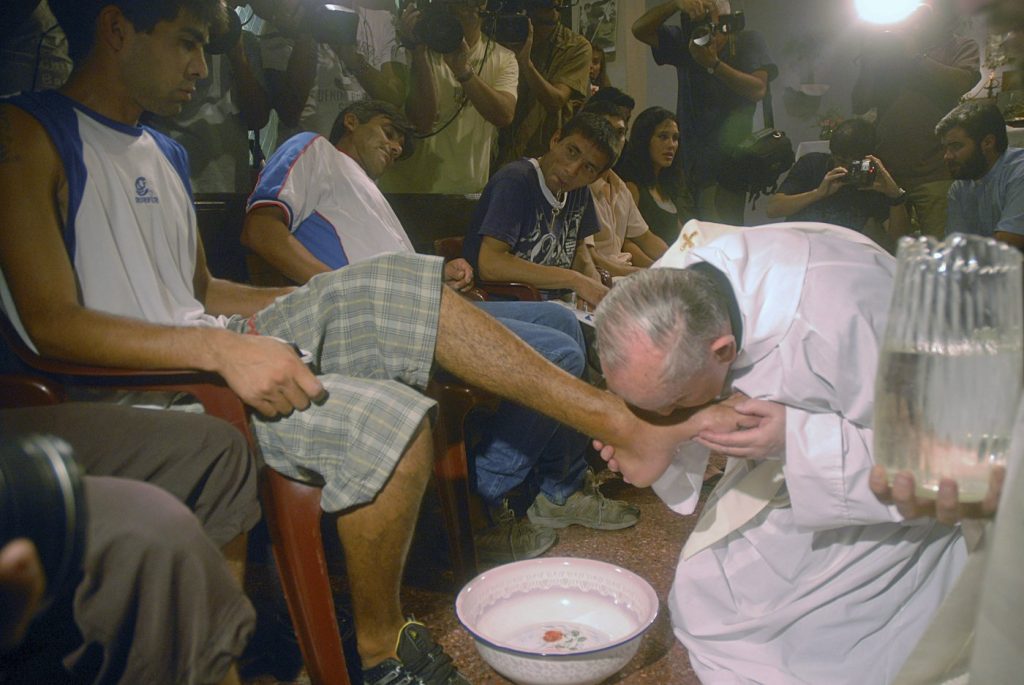VATICAN CITY – Pope Francis, known for his profound gestures of compassion and humility, passed away at the age of 88, just a day after giving his final public blessing on Easter from the loggia of St. Peter's Basilica. The first Latin American pope, Francis made a significant impact since his ascension to the papacy on March 13, 2013, famously introducing himself with a simple "Buonasera" to the enthusiastic crowd below.
Throughout his 12-year papacy, Francis became a symbol of hope and love for many through individual acts of kindness, such as washing the feet of a Muslim prisoner, and advocating for peace by imploring warring leaders in South Sudan. His final hospitalization began on February 14, 2025, following respiratory issues that culminated in double pneumonia, marking a record 38-day stay in the hospital.
Francis's papacy was characterized by a shift towards prioritizing the marginalized and engaging with pressing social issues. Following his election, he took bold steps, such as bringing Syrian refugees to Italy and openly welcoming migrants, the poor, and outcasts while emphasizing the need for mercy and environmental stewardship. His approach aimed not only to reform the Vatican bureaucracy but also to reshape the church’s image by calling for greater inclusivity.
Despite his popularity among progressive circles, Francis faced backlash from conservative factions who believed his focus on social justice and LGBTQ+ inclusion was undermining traditional Catholic teachings. Some even accused him of heresy, especially after he acknowledged the dignity of LGBTQ+ individuals and softened the church's stance on issues like capital punishment, stating it was inadmissible under any circumstances.
His leadership faced particular scrutiny during the clergy sexual abuse crisis, especially after a mismanagement scandal in Chile in 2018 when he was criticized for dismissing victim accounts. Although he later acknowledged his mistakes and took steps to hold church leaders accountable, his handling of these sensitive issues has left a mixed legacy.
Francis’s efforts to make the church more accessible included reforms such as simplifying the process for annulments and allowing priests to absolve women who had abortions. In a notable departure from standard practices, he permitted women to hold significant positions within the Vatican and allowed them to serve as lectors and acolytes. His consistently welcoming approach—reflected in his mantra "todos, todos, todos" (everyone, everyone, everyone)—sought to broaden the church's embrace across various demographics.
His personal style of living—residing in the Vatican hotel rather than the grand Apostolic Palace and opting for modest clothing—further reinforced his commitment to a simpler, more relatable papacy. He proved to be a pastor who sought out marginalized communities, as demonstrated by his numerous visits to places of suffering and need.
Bergoglio, born on December 17, 1936, in Buenos Aires, grew up in a household of Italian immigrants and began his journey in the Jesuit order, aiming to embody a tradition of missionary work. His experiences during Argentina's military dictatorship shaped his understanding of social justice and the church's role amidst political turmoil, even as he faced accusations of complicity for not openly opposing the junta's human rights abuses.
As Pope, Francis embraced the legacy of his predecessor, Benedict XVI, while navigating the complexities of having two popes within the Vatican, fostering a relationship built on respect and collaboration. Despite the challenges, his papal tenure remains influential, centered on themes of mercy, inclusion, and environmental advocacy, resonating deeply with global audiences.
In summary, Pope Francis's papacy was marked by a blend of compassion, radical changes in church policy, and a commitment to social justice, yet it also faced persistent challenges and criticism from traditionalists within the Catholic Church. The impact of his leadership on Catholic doctrine and practice will be a subject of discussion for years to come as the church continues to evolve in a changing world.











